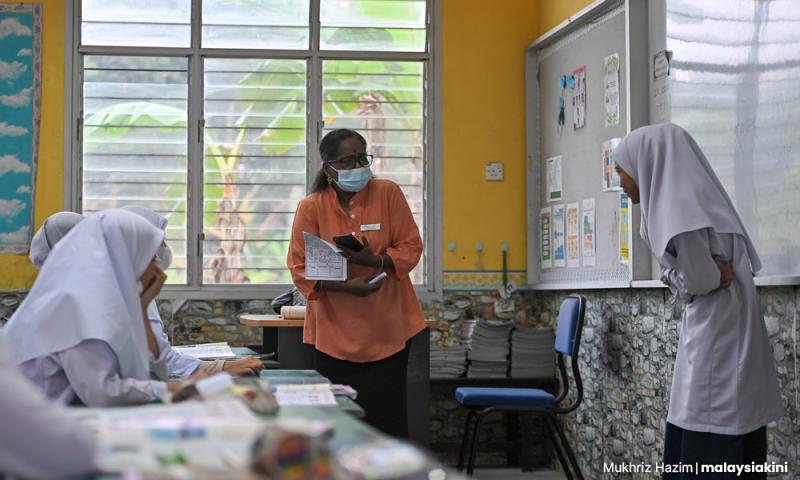LETTER | Holistic approach needed to tackle teacher absenteeism
LETTER | This letter is written in response to the recent court ruling against an absentee teacher and other authorities in Sabah.
This incident serves as an indicator of systemic gaps in our education system and it is incumbent upon us to address this issue earnestly to protect the constitutional right to education for every student.
The unfortunate occurrence of a teacher being absent for seven consecutive months disrupts the learning process of our children and infringes upon their right to quality education.
However, it is critical to recognise that such a situation does not occur in isolation but is indicative of deeper, systemic issues that need to be addressed.
It is worth considering the re-calibration of our education ecosystem to align with sustainable development goal (SDG) 4, which is to ensure inclusive and equitable quality education and promote lifelong learning. Such incidents of teacher absenteeism pose a threat to promoting quality education and require serious attention.
First and foremost, we need to fortify our monitoring systems. Presently, most schools rely on self-reporting of absenteeism among teachers, which might not be entirely effective in curbing such instances.
Countries like Jamaica have implemented electronic attendance tracking, where teachers swipe a card when they enter and exit school premises. India has piloted a project where teachers send a daily selfie to a dedicated server.
While these methods may seem drastic, it is worth exploring similar technological solutions to ensure that everyday learning is accounted for.
Secondly, the issue of accountability must be taken seriously. For instance, school management committees and parent-teacher associations in some countries play an active role in monitoring teachers’ attendance.
These regulators are empowered to take actions, such as withholding a portion of the teacher’s salary in the event of unjustified absence. We should consider adopting a similar decentralised model, wherein the local community participates in ensuring the accountability of our educators.
Thirdly, like any professional, teachers may face personal or professional challenges that impact their job performance.
We should consider implementing support structures similar to those in countries like Finland and Singapore, where a robust framework for teacher welfare includes regular professional development opportunities, mentoring programmes, and support for personal issues.
This holistic approach can minimise burnout and absenteeism while enhancing job satisfaction and commitment among teachers.
Fourthly, fostering collaboration between parents and school authorities can help in the early detection of issues like teacher absenteeism.
In countries like Japan and South Korea, parent-teacher associations are deeply involved in schools’ management, contributing to decision-making processes and improving transparency.
Regular communication between parents and teachers can ensure that concerns are addressed promptly, safeguarding the students’ welfare and learning environment.
Finally, student empowerment is a crucial aspect that is often overlooked. The United States has
seen success with programmes like “Student Voice Committees”, where students are encouraged to express their views on various school issues, including teacher performance.
An empowered student body in Malaysia could similarly act as an early-warning system to signal teacher absenteeism or other issues affecting their education.
The aforementioned cases illustrate that teacher absenteeism can be addressed through comprehensive reforms involving stronger monitoring systems, increased accountability, robust teacher support, enhanced parental involvement, and student empowerment.
Addressing teacher absenteeism is not just about ensuring the physical presence of teachers but also maintaining the quality of education and upholding our children’s constitutional rights.
Let this recent court case serve as a clarion call to reform our education system and create an environment where every stakeholder - the Education Ministry, school administrators, teachers, parents, and students - works in harmony towards delivering quality education for our children.
SERENA LEOW and LONG CHIAU MING are educators at Sunway University.
The views expressed here are those of the author/contributor and do not necessarily represent the views of Malaysiakini.
RM12.50 / month
- Unlimited access to award-winning journalism
- Comment and share your opinions on all our articles
- Gift interesting stories to your friends
- Tax deductable
